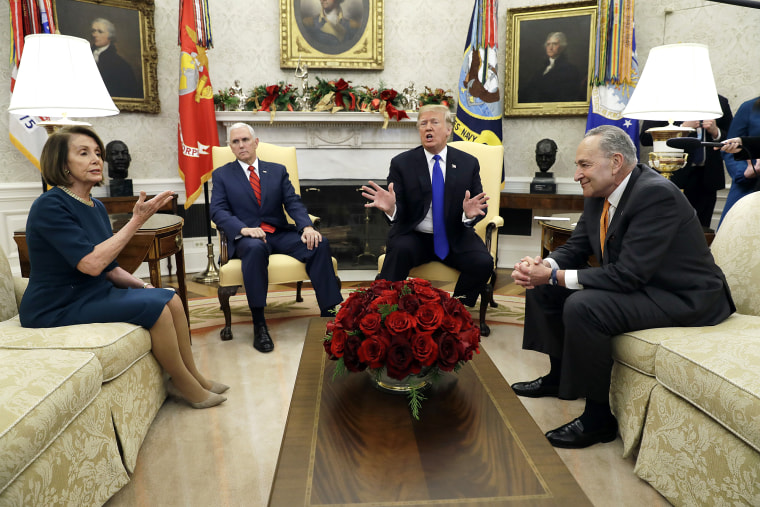After weeks of confusing and contradictory messages, Donald Trump made a bizarre announcement on Tuesday afternoon: the president was pulling the plug on bipartisan talks on an economic aid package. Sure, his opponents were willing to give the economy an enormous pre-election boost, but the Republican had made up his mind: there would be no agreement.
Was there a chance we'd see more negotiations? No, White House Chief of Staff Mark Meadows said. Maybe the door was still ajar? No, White House National Economic Council Director Larry Kudlow added.
But it wasn't long before Trump started publishing tweets that contradicted his own message. The president told Fox Business yesterday that the negotiations -- the ones he ended on Tuesday -- were "starting to work out."
Trump reportedly told House Minority Leader Kevin McCarthy (R-Calif.) that the White House is now looking to strike a "big deal" on economic aid, and by some accounts, the president "badly" wants to see a new aid package come together before Election Day.
All of which leads to a fairly obvious question: what happened to Trump's negotiating position between Tuesday and Thursday? Axios helped answer the question:
A person who spoke with Trump yesterday said that while he would never use the word "regret" about scuttling the negotiations, they got the strong impression that Trump realized he had messed up tactically.
Exactly. The president, with no real forethought or interest in consequences, scrapped negotiations. Wall Street wasn't pleased; congressional Republicans were even angrier; and practically every observer struggled to understand why Trump would undermine his own interests so aggressively.
It apparently wasn't long before the oft-confused president started to realize that maybe sabotaging himself in the final four weeks of re-election campaign wasn't such a good idea.
This is not to say that a deal is imminent. On the contrary, there's little to suggest that the gap between the parties is close to being resolved.
House Speaker Nancy Pelosi (D-Calif.) said this week that Trump's priorities don't even have any meaningful policy value: "All he has ever wanted in the negotiation was to send out a check with his name printed on it. Forget about the virus, forget about our heroes, forget about our children and their need to go to school safely and the rest."
All of this suggests, of course, that a deal may not come together.
But for those Americans in need of an economic lifeline, the fact that Trump has re-opened the door that he'd already closed offers at least some hope.
Update: Late this morning, Trump tweeted that the negotiations he ended a few days ago are now "moving along." He added, "Go Big!" As of Tuesday, one of the president's objections to the Democratic proposal was that cost too much.
